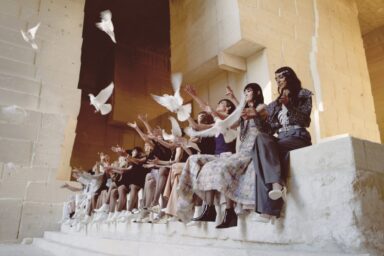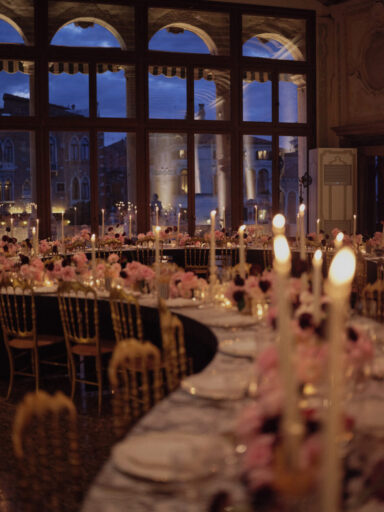The desperate loves of Xavier Dolan are the hedonistic metaphor for a new beginning
Text by: Gianmarco Gronchi
“Does he mention my ache love / Or is he more into young girls with dyed black hair?”
Pass this on, from the 2003 album Deep Cuts by The Knife, plays in the background. Strobe lights begin their intermittent play. A blond boy and a blue-haired girl stand clear in the middle of the dance floor.
On the other side of the room, Francis and Marie. They are good friends but love is a hard game to play, especially if the object of desire of both is the blond boy who is dancing in front of them. Bodies touch and brush against each other. Lips move closer. And Francis and Marie’s gazes are locked up in their own jealousy, caught up in their own feelings. Perhaps, love can also be found in those gazes. Certainly, there is desire, which grows more and more in the awareness that the object of happiness is gradually receding. And so, in Marie’s eyes, the blond boy becomes a Michelangelesque David. And so, he is transformed into Cocteau‘s drawings from Le Livre blanc.

Jean Cocteau “Le Livre Blanc” 1928
A love triangle, passionate, hedonistic, just like the one in Jules et Jim, or as it happens in The Dreamers. A love consisting of poetry, of art. A love of those that, by nature, can only have a failed fulfillment as its conclusion.
This is one of the central scenes of Les Amours Imaginaires, a 2010 movie by brilliant Canadian director Xavier Dolan. More than ten years have passed since that film was released, but this scene still stands out as a powerful metaphor for today. In the end, we all long for: a new job, a person to love and be loved by, a different city, the chance to take back our lives after the global pandemic. We all wish for the freedom to be able to wish. And if in the 1990s it was Trainspotting‘s turn to become the representative film of a disillusioned generation, whose only possibility – and perhaps also only own desire – was to “choose life,” today it is Dolan’s turn to set the rules of the game.
The Canadian director’s language is not easy. His films mix pop and artistic references, fusing them with a romantic and neo-decadent glamorous aesthetic. But perhaps, in the age of the Internet, aware of Warhol‘s lesson that every image can be assimilated and digested, this is what we need for a more sincere communication. Jean Cocteau’s homoerotic drawings from his 1927 book merge with Rickard Engfors‘ androgynous voice, which sings of love, of course, but a love that is always frustrated. The Knife’s song is also about an impossible love, about a transsexual who has fallen in love with the straight brother of an acquaintance.
But with the fall of ideals, with the fall of all political parties, with the fall of the utopia of a truly better world, what remains for today’s young people but desire, and love? A desire for love and a love of desire that feed off each other, in a hedonistic pleasure of the senses to be interpreted as a palliative for this strange age. There is certainly a touch of selfishness in all this. Millennials called to the test of time in the solitude of their own individuality, in the tacit hope of being different from others, but in the deep-rooted awareness of not being different at all.
If Alessandro Michele told us “Dress as you like,” Dolan seems to tell us “Want what you want, you have the right to do so.” Loving without receiving any love back, embracing, and being hurt often seem to be sides of the same coin. But it is also a moment of rediscovery of ourselves, a moment to reconnect with our own corporeity, our own feelings. So, after years in which we have been called upon to face death and the deprivations imposed by the pandemic, it seems that the time has finally come again to listen to our passions, our drives, our secret, unspoken desires. Art, literature, music will help us. Fashion will help us. But we have to be sincere, not afraid to show what we feel inside. Besides, as David Foster Wallace wrote in Infinite Jest, we may discover “that it is permissible to want.”


